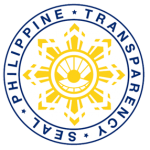The DA-PCC’s nationwide commitment for the DepEd’s School-based Feeding Program in 2022 has already reached 1,157,825 beneficiaries, 24.46% of such commitment were from its National Headquarters and Gene Pool (NHQGP). It is 5.07% higher than the 2019 level, which had 19.39% record of share in the national commitment. Moreover, two successful cycles of the supplementary feeding program of DSWD have been concluded while another milk feeding program is underway for the month of July.
These were some of the notable accomplishments highlighted during the recently conducted Cycle Assessment and Catch-up Planning for the Milk Feeding Program and Organizational Development Activity in San Juan, La Union.
Said activity was participated in by the agency’s Milk Feeding staff members headed by newly designated DA-PCC National Milk Feeding Coordinator Joel F. Cabading and Central Dairy Collection Processing Facility (CDCPF) Management and Processing personnel headed by Plant Manager Marivic A. Orge.
Republic Act 11037 also known as the “Masustansyang Pagkain para sa Batang Pilipino Act” unlocked opportunities for DA-PCC to extend its hand to its assisted dairy local farmers and cooperatives. This law generally aims to improve the nutritional status of undernourished children and at the same time create market channels for the milk products of local dairy farmers.
Aside from the increased number of beneficiaries, the DA-PCC now provides services from 15 Schools Division Offices (SDO) of DepEd in 2019 to 19 SDOs after extending its area of milk supplementation from Regions 2 and 3 to the National Capital Region (NCR). This progress also paves the way to creating a direct market for more DA-PCC-assisted milk feeding suppliers, from four cooperatives and one federation in 2019 to six cooperatives and one federation in 2022.
The activity also had a discussion, facilitated by Orge, where identified issues and concerns throughout the value chain from the previous and on-going cycles of the milk feeding program were tackled and provided with possible solutions. Several plans and actions were developed to cope with the dynamic changes affecting the implementation of the program.
An Organizational Development Activity, facilitated by Cabading, was conducted as well to develop individual capacity among the participants in pursuing and accomplishing their respective tasks and responsibilities.
Furthermore, the participants were given a group activity to impart their knowledge on how they function as a group to contribute to the overall success of the team and the improvement of the service being provided to partners and clients. In this particular assembly, team building activities were also given to the participants in order to develop a team that strategically provides action to solve the given task. This activity aims to hone the whole group to function as one and be able to identify their specific tasks and utilize their strengths and knowledge to minimize errors that might hinder the progress of the program.












